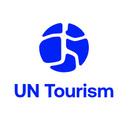UNWTO Joins Investors With Tourism Leaders at Cabo Verde Forum
UNWTO has celebrated the second edition of the Global Tourism Investment Forum. Joining Ministers of Tourism for the event in Cabo Verde were business leaders, entrepreneurs and investors, with a special focus on innovation and sustainable recovery from the impacts of the COVID-19 pandemic.
With the crisis causing levels of Foreign Direct Investment in tourism to plummet 73%, the Forum provided a platform for diverse stakeholders to support and promote investments in the sector. Panel discussions, led by leading experts from across the tourism and finance sectors, focused on “innovation and investment”. Alongside providing an analysis of the investment climate in African tourism, including in the case of Cabo Verde, the discussions also addressed potential measures for promoting sustainable investments, digitalization and innovations, the future of mobility and sustainable transport, as well as using targeted investments to drive economic recovery, job creation and resilience post COVID-19.
Unlocking tourism’s potential
UNWTO Secretary-General Zurab Pololikashvili said: “Well targeted investments can stimulate entrepreneurship, create jobs and drive the green transformation of our tourism, in Africa and worldwide. UNWTO is committed to promoting and building investments in tourism to unlock the sector’s potential to drive recovery and provide opportunity for all.”
The event was opened by José Ulisses de Pina Correia e Silva, Primer Minister Cabo Verde, and featured the participation of Tourism Ministers from across Africa as well as from Spain and the Kingdom of Saudi Arabia, as well as of investment bodies, multilateral funds, African regional economic communities, and from the private sector, including travel tech startups. Highlighting the international nature of the Forum, more than ten investors came from Europe to Cabo Verde to explore investment opportunities focused on innovation and infrastructure. They were joined by investors from South Africa, and the USA, with all participants benefitting from unique networking opportunities on the tourism island of Sal. Investors included RIU Group, Plug & Play, Aguaduna, CMC XXI, QEV Tech Electromobility Holdings, TUI Care Foundation, ALESA Group, Grupo Piñero and Fundacion Metropoli.
Capacity building and branding
Alongside the presentations and panel discussions, the Forum also featured capacity building workshops focused on investments and innovation, alongside an overview of UNWTO’s Brand Africa initiative aimed at helping destinations across the continent harness the power of digital marketing to reach new audiences and attract visitors.
The Little Africa Maio Project was also presented as an effective example of directed foreign investment in tourism with the potential to deliver a wide range of economic, social and ecological benefits.
About UN Tourism
The World Tourism Organization (UN Tourism), a United Nations specialised agency, is the leading international organisation with the decisive and central role in promoting the development of responsible, sustainable and universally accessible tourism. It serves as a global forum for tourism policy issues and a practical source of tourism know-how. Its membership includes 166 countries, 6 territories, 2 permanent observers and over 500 Affiliate Members from the private sector.
Media enquires: [email protected]
UN Tourism Communications Department
+34 91 567 8100
UN Tourism
